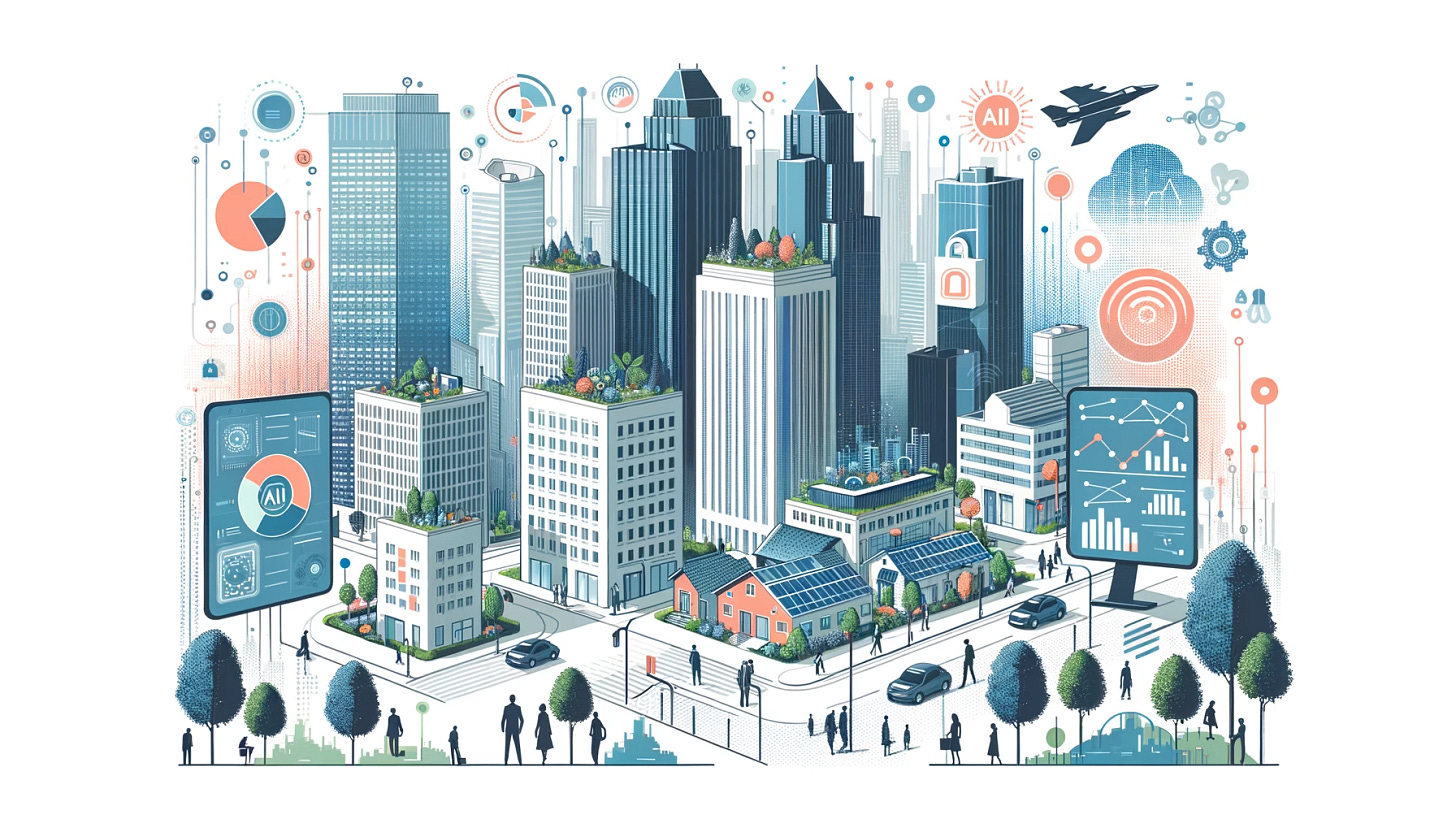Revolutionizing Real Estate: The AI Advantage
Exploring the Impact of AI on Efficiency, Service, and Sustainability in Real Estate
Real Estate is one of the industries that has been averse to adopting new technology. When it has adopted them, it has been very slow at best. Generative AI is emerging, thanks to OpenAI's ChatGPT. It might be the thing that could change this trend.
At present, AI has become a hot word, mentioned daily in all Real Estate news and talked about at conferences. This time the time is ripe for a smarter adoption of technology in the sector.
This technology has the scope to provide a profound impact on the sector on many levels. It will help streamline business operations for those engaged in developing real estate. It will make spaces more efficient. It will also improve how providers relate to customers.
Now, let's dive in.
Maximising Efficiency: AI's Role in Environmental and Operational Excellence
Real Estate has a high impact on the environment. It takes time to deliver new buildings and requires high injections of equity and debt. It is so imperative that every square foot (or meter) of space we use is performing at its best. We need to do more with less.
Eric Ries wrote the book "The Lean Startup." It provides an interesting analogy. We can take it from SaaS and apply it to Real Estate.
The book teaches us to put out a product. This lets us start to get data and feedback. With the feedback, it’s possible to start optimising and refining the product. You can then decide whether to keep the original product or pivot.
AI is great at handling massive amounts of data and decoding it for us to use. This brings huge potential. Real Estate Operators will now understand how buildings perform. In the future, AI will be able to have buildings that improve themselves. They will help reduce the energy they use and optimize themselves to better serve users.
See how Podium Property Insights by Lendlease Podium can help. It aids CRE managers. They use it to optimize their buildings with predictive analytics.
Elevating Experiences: Transforming Customer Service with AI
Real estate is becoming more human-centric and experience-driven. Customer service is the foundation. This becomes particularly important for Asset Classes in the workplace and living sectors.
Traditional Commercial Real Estate had a Landlord vs. Tenant relationship. Landlords talked to Tenants only if there was a problem. They also talked during the rent reviews set in the Lease. Customer Service wasn’t a thing.
In service-based Real Estate, the landlord becomes a service provider. They serve the people using the space. They expect a certain level of customer service and responsiveness.
Avy has used AI to develop a Tenant Experience system. They call it the Fourth Generation Tenant Experience. Below is an extract of what their Tech is capable of:
…it can also enable and manage processes that offer a more personalized tenant experience with 24/7 accessibility, wherever you are and whatever language you speak.
Beyond Square Footage: Rewarding Productivity and Well-being in Real Estate
Post-pandemic we are coming to terms with the fact that we can perform certain tasks even if we are not present. We can do our groceries online and get them delivered to our doorstep. We can perform the same work tasks as we used to do in the office.
Real Estate operators must now offer ready-to-occupy space. They will earn rewards for their efforts. The space provided should allow people using it to become:
more productive.
more efficient.
healthier or to leave the building feeling better than when they arrived.
Developers like HB Reavis have already started to introduce custom Lease Agreements. In these, rent premiums go to the Landlord. A Tenant's business performance and the quality of the space tie them together.
Revolutionizing Real Estate Development: The AI Edge in Streamlining Operations
Developing Real Estate can be a complex process involving many steps and stakeholders. This process has many steps. Each step has many small inefficiencies. These inefficiencies frustrate daily business operations.
I created Development Briefs and Consultant Contracts. I also made Lease Agreements and did Market Research and Analysis. I also did Financial Appraisals on many scenarios. These tasks are ripe for streamlining. AI and digitisation can make them more efficient.
Hundreds of ad-hoc AI apps are being developed and released every week. They aim to solve the above problems. Yet, a lot is possible to achieve thanks to the support of GenAI (Generative AI) tools like ChatGPT. If used well, they can offer us the opportunity to always start from a Final Draft rather than a blank piece of paper.
Below are a few areas where we can use GenAI. It can optimize our work and handle simple tasks. This will let us regain time.
Let AI critique a brief. Or, let it suggest what to include.
Feed the AI market reports. Then, ask it to give us key headlines or relevant info.
For non-legal experts, ask the AI to critique documents. It can summarize key clauses and search for key provisions or exclusions.
Financial Analysts use AI to extract data from complex spreadsheets. They then use it to make useful visualizations to interpret the data better.
Conclusion
As we navigate the changing Real Estate landscape, AI integration offers new chances. They are for innovation, efficiency, and sustainability. Our journey into this new era is not about using technology. It's about reimagining how we design, manage, and use our spaces.
I hope this week’s Letter inspires you. It's about embracing AI in your Real Estate work. AI unlocks potential and drives you forward with resilience and insight.
That's all for today.
See you next week.



